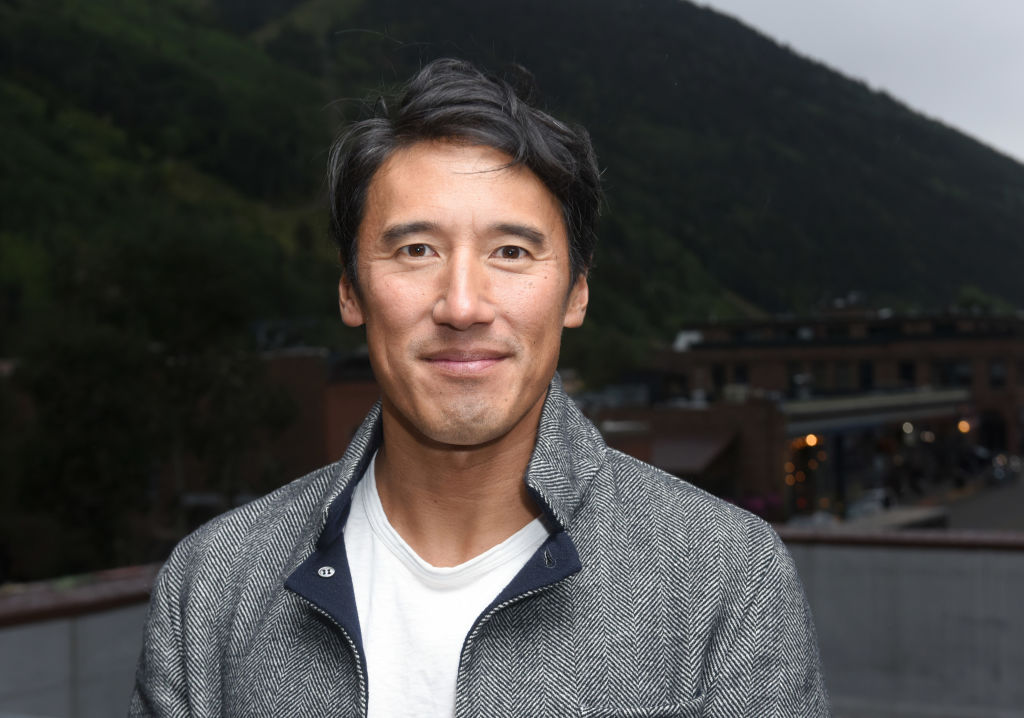When you have the opportunity to ask some of the most interesting people in the world about their lives, sometimes the most fascinating answers come from the simplest questions. The Thrive Questionnaire is an ongoing series that gives an intimate look inside the lives of some of the world’s most successful people.
Jimmy Chin is an Academy Award-winning filmmaker, National Geographic photographer, and professional mountain sports endurance athlete. With over 20 years of traveling the world leading some of the most amazing and beautiful expeditions, Chin has built his life around adventure, resilience, wonder, determination, and perseverance. He co-produces and co-directs award-winning documentaries with his wife, Chai Vasarhelyi, and their latest, Free Solo, won a BAFTA and an Academy Award for Best Documentary Feature in 2019.
In his Thrive Questionnaire, Chin shares how he overcomes burnout through gratitude, makes self-care a priority, and the most important lesson he learned to achieve success.
Thrive Global: What is the first thing you do when you wake up?
Jimmy Chin: Someone told me a few months ago to wake up first thing in the morning and think of three things or people I am grateful for. I’ve been doing that lately — nice way to start the day.
TG: How do you balance storytelling and climbing?
JC: I’m usually focused on climbing when I am climbing. When I am shooting climbing or skiing, I am more focused on shooting. There are certainly times when I am doing both, particularly on expeditions. Regardless, I am a climber first in those situations. You have to have all your bases covered as a climber before you can think about shooting.
TG: When was the last time you experienced burnout? How did you overcome it?
JC: I’ve experienced burnout after numerous back-to-back expeditions before. I try to remind myself that I’ve made the choices to be there and to be grateful for the life I’ve chosen and the ability to live. Trying to be grateful is a theme for sure. It helps to have gratitude in life.
TG: How do you practice self-care when you’re constantly moving between the frontcountry and backcountry? Does this ever become overwhelming?
JC: Self-care, for me, is getting enough exercise and getting outside. I find ways to get outside for a quick run or head to a climbing gym whenever I am traveling. Sometimes it’s just some yoga in my hotel room. Today I had a three-hour layover in LA after a 16-hour flight from Qatar. I went to a nearby climbing gym and had a great two-hour climbing session before my next flight. It was awesome. I am also a big proponent of natural remedies for training, recovery, and long-term wellness. I am also a big proponent of natural remedies for training, recovery and long-term wellness, so I take HANAH ONE with me everywhere.
TG: How has your background influenced you?
JC: I grew up swimming competitively and studying the martial arts from as early as I can remember. Those taught me discipline and the kind of hard work it takes for excellence and to progress. I’m not sure if it was nature or nurture, probably both, but my parents always emphasized excellence and working hard towards goals. I rebelled of course, but still took what they taught me and applied them to climbing, skiing, photography, etc.
TG: Why do you think Free Solo resonated with so many people?
JC: Free Solo was about Alex [Honnold] free soloing El Cap, but it hit upon a lot of universal stories around ambition, perfection, love, human potential, and passion. I think combined with some outrageous free soloing footage, the film hit a lot of different chords and had something for everyone. Pre-production for Free Solo was challenging because we never knew when he was going to go for it, if ever. It’s hard to plan when there are so many unknowns.
TG: What brings you optimism?
JC: Nature.
TG: How do you sleep?
JC: Very well, especially if I’ve had a long day in the mountains.
TG: What is your relationship with technology?
JC: It’s a love-hate relationship. I’ve leaned a lot on technology to allow me to do what I do, but few things make me happier and more present than leaving it all behind.
TG: What was your most challenging climb? Can you tell us about it?
JC: It’s hard to say what’s been my most challenging climb. Meru was challenging, but there are so many others. Meru was just the one that happened to get filmed. Some of my big climbs in the Karakoram were very challenging, and I was less experienced, so they felt terrifying. The mental part of climbing can be the most challenging aspect.
TG: Can you share one time you failed and how you learned from it?
JC: I’ve failed on a lot of climbs. I’ve learned that failure is essential to progress, so I try to think of them as lessons and not failures. I’ve also learned the importance of trust, and surrounding yourself with the best people and team possible. Over the years, the most important lesson I’ve learned is to have goals, but you better enjoy the process.
TG: Best tips for prioritizing your time?
JC: Prioritize doing the things you love most, and spending time with the people you love most.
TG: What causes you stress and why? Are there tools you have to alleviate it?
JC: Not spending enough time with my family stresses me out. I want to see and be a part of my kids’ childhood. Prioritize the time with your family.
TG: Can you share a quote or mantra that helps you thrive?
JC: Commit and figure it out.
Follow us here and subscribe here for all the latest news on how you can keep Thriving.
Stay up to date or catch-up on all our podcasts with Arianna Huffington here.


